Are you looking to streamline your shipping process from China to Norway?
Understanding the vital role of a shipping agent can significantly ease your international trade experience. In this comprehensive guide, we will explore how shipping agents facilitate imports, the key considerations for choosing the right agent, essential documentation, and cost factors that can influence your shipping journey. Whether you’re new to importing or seeking to enhance your existing knowledge, this blog will equip you with the insights needed for successful shipping from China to Norway.
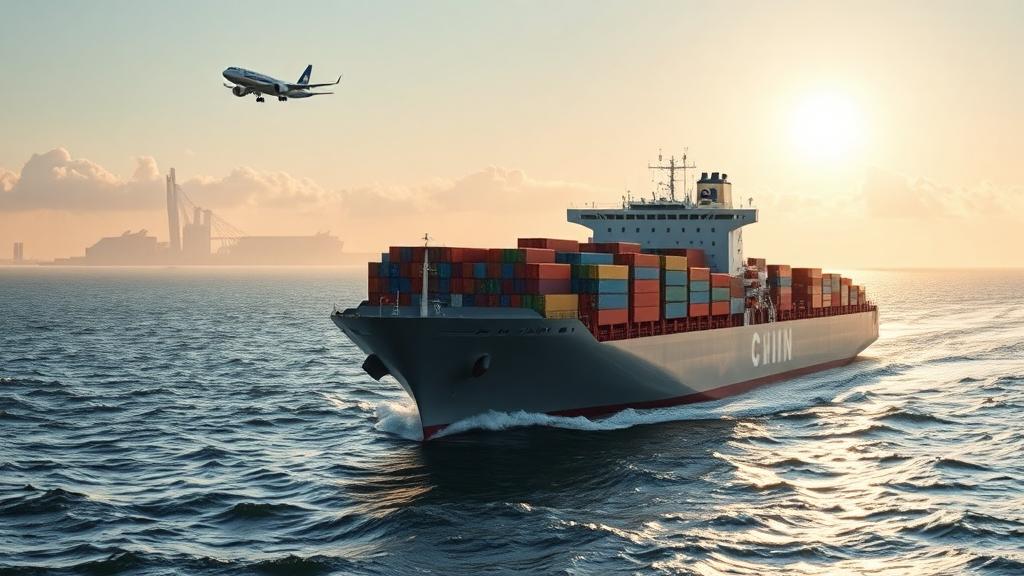
Understanding the Role of a Shipping Agent from China to Norway
Importance of a Shipping Agent in International Trade
In the complex world of international trade, a shipping agent plays a pivotal role in ensuring that goods are transported efficiently and legally across borders. When importing goods from China to Norway, having a reliable shipping agent is crucial for several reasons:
Expertise in Compliance: Shipping agents are well-versed in the customs regulations, tariffs, and import/export laws of both the exporting and importing countries. This expertise helps prevent delays and additional costs due to non-compliance.
Cost Efficiency: They can negotiate better shipping rates with carriers due to their industry connections and volume, ultimately saving you money. A professional agent like Dantful International Logistics can provide cost-effective solutions tailored to your specific needs.
Streamlined Processes: A shipping agent manages the entire logistics process, including booking cargo space, arranging for the collection, and ensuring timely delivery to the final destination. Their organization helps reduce the likelihood of miscommunication and lost items.
Risk Management: Shipping agents often provide insurance options, ensuring that your goods are protected against potential risks during transit. This added layer of security can provide peace of mind while shipping valuable goods.
How Shipping Agents Facilitate Imports from China
Shipping agents act as intermediaries between the importer and various service providers in the shipping process. Their responsibilities include:
Coordinating Transportation: They organize the movement of goods from the supplier’s warehouse in China to the desired location in Norway, providing options for ocean freight, air freight, or other methods depending on speed and cost preferences.
Customs Clearance: Shipping agents prepare and submit all necessary documentation for customs clearance, ensuring that your shipment meets Norwegian regulations and that duties are paid. This crucial step prevents delays at the port of entry.
Tracking and Updates: They provide regular updates on shipment status, allowing importers to track their goods in real-time. This transparency is vital for managing supply chain logistics.
Problem Solving: In the event of any issues—such as delays, damages, or lost cargo—shipping agents have the resources and knowledge to address problems quickly and efficiently.
Key Considerations When Choosing a Shipping Agent to Norway
Factors to Evaluate for a Smooth Shipping Process
Choosing the right shipping agent can significantly impact your import experience. Here are key factors to evaluate:
Experience and Reputation: Look for agents with a proven track record in shipping from China to Norway. Check their ratings and reviews, and ask for references from other clients.
Services Offered: Ensure that the shipping agent provides comprehensive services, including customs clearance, insurance, and various shipping methods (ocean, air, rail). At Dantful International Logistics, we offer a full suite of services tailored for global traders.
Communication: A reliable shipping agent should maintain open lines of communication. They should be responsive and willing to address any questions or concerns throughout the shipping process.
Technology Utilization: Consider agents who employ advanced tracking systems and logistics software. These technologies enhance efficiency and provide real-time visibility of your shipments.
How to Identify Reliable Shipping Agents
Identifying a trustworthy shipping agent can be challenging, but the following strategies can help:
Conduct Research: Use online platforms to search for shipping agents specializing in China-Norway trade. Websites like Freightos or Flexport offer resources to compare shipping agents based on services and costs.
Request Quotes: Contact multiple agents to gather quotes and service details. An agent who provides transparent pricing and clear terms is more likely to be reliable.
Check Credentials: Verify that potential agents have the necessary licenses and certifications to operate as shipping agents. Membership in industry associations, such as the International Federation of Freight Forwarders Associations (FIATA), can also indicate credibility.
Schedule Consultations: Meeting with potential agents can provide insight into their operations and customer service practices. Use this opportunity to assess their knowledge and expertise.
By carefully considering these aspects, you can select a shipping agent that not only meets your logistical needs but also enhances your overall import experience from China to Norway. At Dantful International Logistics, we pride ourselves on being a highly professional, cost-effective, and high-quality one-stop international logistics service provider for global traders.
Read More:
- Shipping From China To Netherlands
- Shipping From China To Spain
- Shipping From China To Germany
- Shipping From China To France
- Shipping From China to Italy
- Shipping From China To Poland
- Shipping From China to United Kingdom
Essential Documentation for Shipping from China to Norway
When importing goods from China to Norway, accurate and complete documentation is crucial for ensuring smooth customs clearance and compliance with local regulations. Below, we outline the required shipping documents and the significance of Incoterms in the shipping process.
Required Shipping Documents for Customs Clearance
Commercial Invoice: This document serves as a bill for the goods and includes details such as the seller and buyer’s information, product descriptions, quantities, and prices. It is essential for calculating customs duties and taxes.
Packing List: This outlines the contents of the shipment, detailing how the goods are packed, including dimensions and weight. It assists customs officials in verifying the shipment against the commercial invoice.
Bill of Lading (BOL): A critical document issued by the shipping company, the Bill of Lading acts as a receipt for cargo and a contract for transportation. It can be a Sea Bill of Lading (for ocean transport) or an Air Waybill (for air transport).
Customs Declaration Form: This form provides authorities with details about the goods being imported and is necessary for customs clearance. It should accurately reflect the value and nature of the goods.
Certificate of Origin: This document verifies the country where the goods were produced, which may be required to qualify for tariff exemptions or reductions under trade agreements.
Insurance Certificate: It is advisable to have insurance coverage for your shipment. The insurance certificate provides proof of coverage in case of loss or damage during transit.
Import License: Depending on the nature of the goods, certain items may require an import license from Norwegian authorities before they can be shipped.
Understanding and preparing these essential documents can significantly expedite the customs clearance process, minimizing delays and potential fines.
Understanding Incoterms and Their Importance
Incoterms (International Commercial Terms) are a set of predefined commercial terms that define the responsibilities of buyers and sellers in international trade. These terms clarify who is responsible for shipping costs, insurance, and tariffs, which can vary significantly depending on the agreed terms.
Common Incoterms: Some common Incoterms include:
- FOB (Free On Board): The seller is responsible for shipping costs and risk until the goods are loaded onto the vessel. After that, the buyer assumes responsibility.
- CIF (Cost, Insurance, and Freight): The seller covers costs, insurance, and freight charges to transport the goods to the destination port. The risk transfers to the buyer once the goods are loaded.
- EXW (Ex Works): The seller’s responsibility ends when the goods are made available at their premises. The buyer is responsible for all transportation costs and risks from that point onward.
Importance of Incoterms: These terms are essential for:
- Determining liability and risk during shipping.
- Avoiding disputes and misunderstandings between parties.
- Streamlining logistics by clearly defining roles and responsibilities.
By understanding Incoterms, importers can negotiate better shipping arrangements and ensure compliance with both Chinese and Norwegian regulations.
Cost Factors Influencing Shipping from China to Norway
Shipping costs from China to Norway can vary based on several factors, including the mode of transport, the nature of goods, and additional services required. Below is a breakdown of the key cost factors associated with international shipping.
Breakdown of Shipping Costs: Freight, Insurance, and Duties
| Cost Component | Description |
|---|---|
| Freight Costs | Charges for transporting goods via sea or air. Includes container costs for ocean freight and fuel surcharges. |
| Insurance | Premiums paid for cargo insurance to protect against loss or damage during transit. Typically ranges from 0.5% to 2% of the cargo value. |
| Customs Duties | Tariffs imposed by the Norwegian government on imported goods. Rates vary based on the product type and may require classification. |
| Handling Fees | Charges for loading and unloading cargo at the port or airport. |
| Port and Terminal Fees | Fees associated with using port facilities, which may vary by location. |
| Documentation Fees | Costs related to preparing necessary shipping documents, including customs paperwork. |
Understanding these costs will help you calculate your total expenses when shipping from China to Norway.
Strategies to Reduce Shipping Costs When Importing
Consolidation of Shipments: Combining smaller shipments into a single larger one can help reduce overall freight costs. This approach maximizes container space and minimizes shipping fees.
Choosing the Right Shipping Method: Assessing the nature of your goods can help determine the most cost-effective shipping method. For example, while air freight is faster, ocean freight is often more economical for bulk items.
Negotiating with Shipping Agents: Building a relationship with a reputable shipping agent, such as Dantful International Logistics, can provide access to better rates and services. As a highly professional, cost-effective, and high-quality one-stop international logistics service provider, we can offer tailored solutions that meet your shipping needs.
Utilizing Freight Forwarding Services: Engaging a freight forwarder can streamline the shipping process and help you navigate complex logistics, potentially saving you money through their industry connections and expertise.
Monitoring Currency Exchange Rates: Fluctuations in currency can impact overall costs. Keeping an eye on exchange rates can help you choose the best time to make payments.
By implementing these strategies, importers can effectively manage and reduce shipping costs when importing goods from China to Norway.
Shipping Methods Available for Transporting Goods to Norway
When importing goods from China to Norway, choosing the right shipping method is critical. The two primary options are ocean freight and air freight, each with its own advantages and disadvantages.
Ocean Freight vs. Air Freight: Which is Right for You?
| Criteria | Ocean Freight | Air Freight |
|---|---|---|
| Cost | Generally more cost-effective for large shipments | More expensive, ideal for high-value or urgent items |
| Speed | Slower transit times (typically 20-40 days) | Rapid delivery (usually 1-5 days) |
| Capacity | Suitable for bulky and heavy cargo | Limited capacity, best for smaller, lightweight goods |
| Environmental Impact | Higher carbon footprint compared to air freight | Lower carbon footprint; more environmentally friendly |
| Tracking | Enhanced tracking capabilities with modern technology | Advanced tracking options, real-time updates |
Choosing between ocean freight and air freight depends on your specific needs, such as budget constraints and delivery timelines. If you are shipping large volumes and can afford longer transit times, ocean freight is the way to go. Conversely, if your goods are time-sensitive, air freight may be the better choice, despite the higher costs.
Understanding Container Options for Shipping to Norway
When opting for ocean freight, understanding the different container options available for shipping to Norway is essential. This helps in selecting the appropriate type based on your cargo requirements:
| Container Type | Description | Best For |
|---|---|---|
| 20-Foot Container | Standard container; holds about 28 cubic meters of goods | Smaller shipments, bulky items |
| 40-Foot Container | Double the capacity of a 20-foot container; holds about 56 cubic meters | Larger shipments, more cost-effective for bulk goods |
| Reefers | Temperature-controlled containers for perishable goods | Food, pharmaceuticals, and other temperature-sensitive items |
| Open Top Containers | Top is open for easy loading of tall cargo | Machinery and oversized items that cannot fit in standard containers |
| Flat Rack Containers | No sides, ideal for heavy and oversized cargo | Heavy machinery and construction equipment |
Selecting the right container type ensures that your goods are shipped efficiently and safely to Norway. Collaborating with a reliable shipping agent, such as Dantful International Logistics, can help you make informed decisions regarding container options and optimize your shipping experience.
Navigating Customs Regulations When Shipping to Norway
Navigating the complex customs regulations when shipping goods from China to Norway can be challenging. Understanding the nuances of the customs process is crucial to ensure a smooth importation of your goods.
Common Customs Challenges and How to Overcome Them
| Challenge | Description | Solution |
|---|---|---|
| Incomplete Documentation | Missing or incorrect documents can delay clearance | Ensure all documents are complete and accurate |
| Tariff Classifications | Misclassification can lead to higher duties | Work with your shipping agent to get correct classifications |
| Customs Inspections | Random inspections can delay shipments | Ensure compliance with all regulations to minimize delays |
| Value Declarations | Incorrectly declared values can result in penalties | Accurately declare the value of the goods being imported |
Having a clear understanding of these challenges and working closely with your shipping agent can help mitigate risks and ensure a seamless customs process.
Tips for Ensuring Compliance with Norwegian Customs
To avoid customs complications when importing goods into Norway, consider the following best practices:
Know the Regulations: Familiarize yourself with Norwegian customs regulations and import restrictions that may apply to your product category.
Use Professional Shipping Agents: Engaging a knowledgeable shipping agent, like Dantful International Logistics, can provide you with the expertise needed to navigate complex customs requirements effectively.
Prepare Accurate Documentation: Ensure that all necessary documentation, such as commercial invoices, packing lists, and bills of lading, is complete and accurate.
Stay Updated on Tariffs and Duties: Regularly check for updates on tariffs and other import duties that may affect your shipments to Norway.
Schedule Pre-Shipment Inspections: For certain goods, pre-shipment inspections may be required to ensure compliance with Norwegian standards.
By following these tips and consulting with Dantful International Logistics, you can enhance your compliance with Norwegian customs and facilitate a smoother shipping process for your goods from China to Norway.
Building a Strong Partnership with Your Shipping Agent
Effective Communication for Successful Shipping
Establishing a successful partnership with your shipping agent is fundamentally rooted in effective communication. Clear and open lines of communication help ensure that both parties are on the same page regarding expectations, shipping schedules, and potential issues that may arise during the shipping process from China to Norway.
Regular Updates: It’s crucial to establish a routine for updates. Regular check-ins can help you stay informed about the status of your shipment, any potential delays, and important deadlines. A good shipping agent will provide you with timely updates on the progress of your cargo, including notifications about departure and arrival times, as well as customs clearance status.
Clarifying Expectations: At the outset of your partnership, clearly outline your expectations regarding service levels, delivery timelines, and any specific needs your business may have. This shared understanding is essential for smooth operations and can greatly enhance the efficiency of the shipping process.
Feedback Mechanism: Encourage your shipping agent to provide you with feedback, and be prepared to share your experiences as well. This two-way communication fosters a collaborative environment where issues can be swiftly addressed, ultimately leading to improved service.
Leveraging Expertise: How Your Shipping Agent Can Help
Your shipping agent is not just a facilitator; they are also a valuable resource who can help you navigate the complexities of international shipping from China to Norway. Here’s how you can leverage their expertise:
Market Knowledge: A proficient shipping agent has extensive knowledge of the shipping market, including current rates, trends, and best practices. They can provide you with insights that can help you make informed decisions, whether it’s choosing the right shipping method or understanding seasonal fluctuations in freight costs.
Compliance Assistance: Shipping to Norway involves adhering to specific regulations and customs requirements. An experienced shipping agent can guide you through the necessary documentation and compliance protocols, minimizing the risk of delays or penalties. They can also help you understand Incoterms, ensuring that responsibilities are clearly defined in your shipping contracts.
Problem-Solving Skills: Delays, customs issues, and other unexpected challenges can arise in international shipping. A skilled shipping agent will have the problem-solving skills to address these challenges effectively. Their established connections and industry knowledge can help expedite solutions, reducing potential impacts on your supply chain.
Best Practices for Successful Shipping from China to Norway
Preparing Your Goods for Transport
Preparation is key to a smooth shipping process. Properly preparing your goods for transport can minimize damage during transit and ensure compliance with shipping standards. Here are some best practices:
Packaging: Ensure that your products are packaged securely using durable materials that can withstand the rigors of shipping. Consider using pallets and protective wrapping (e.g., bubble wrap, foam) to prevent damage. Correctly packing your items also helps optimize space utilization in containers, potentially reducing shipping costs.
Labeling: Clearly label all packages with necessary shipping information, including the destination address, handling instructions, and any required customs information. This practice not only streamlines the shipping process but also helps facilitate quick identification of packages during transit.
Inventory Management: Maintain accurate inventory records of the goods being shipped. This will assist you in tracking your shipments, managing your supply chain, and ensuring that you have adequate stock levels upon arrival in Norway.
Tracking Shipments: Tools and Techniques
Keeping track of your shipments is essential for maintaining visibility in your supply chain. Here are some tools and techniques to help you effectively track your shipments from China to Norway:
Tracking Software: Utilize shipment tracking software or tools provided by your shipping agent. These tools allow you to monitor the real-time status of your shipments, enabling you to stay informed about their location and estimated delivery times.
Automated Notifications: Many shipping agents offer automated notification systems that send updates regarding the status of your shipments via email or SMS. Enabling these notifications ensures you receive timely information about any changes or developments in your shipment’s status.
Communication with Your Shipping Agent: Maintain regular communication with your shipping agent to stay updated on your shipments. They can provide insights that tracking tools may not capture, such as potential delays or issues during transit.
By following these best practices and building a strong partnership with your shipping agent, you can enhance the efficiency of your shipping operations from China to Norway. At Dantful International Logistics, we pride ourselves on being a highly professional, cost-effective, and high-quality one-stop international logistics service provider, ready to assist you in every step of your shipping journey.

Young Chiu is a seasoned logistics expert with over 15 years of experience in international freight forwarding and supply chain management. As CEO of Dantful International Logistics, Young is dedicated to providing valuable insights and practical advice to businesses navigating the complexities of global shipping.

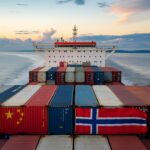
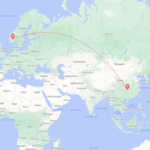
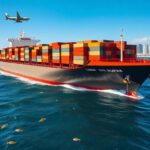
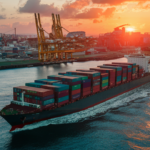



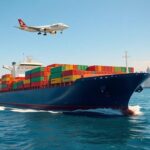
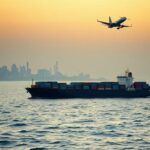

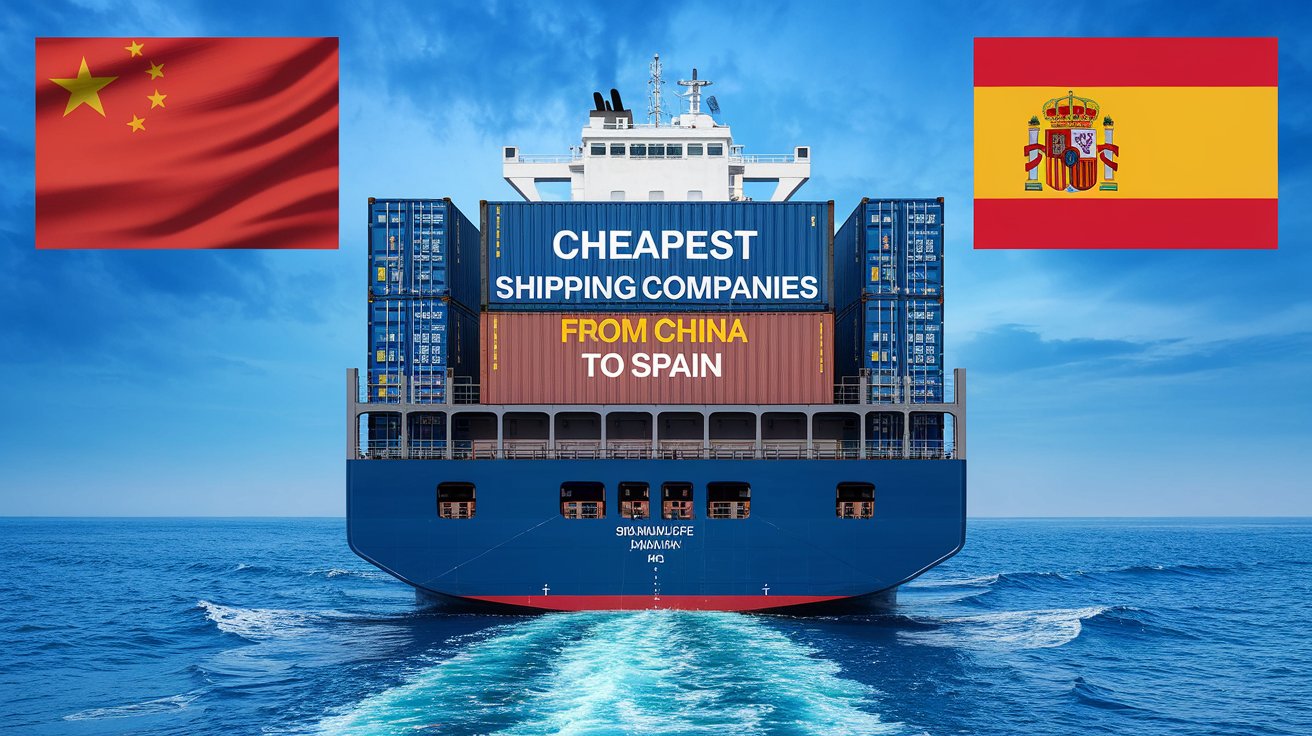
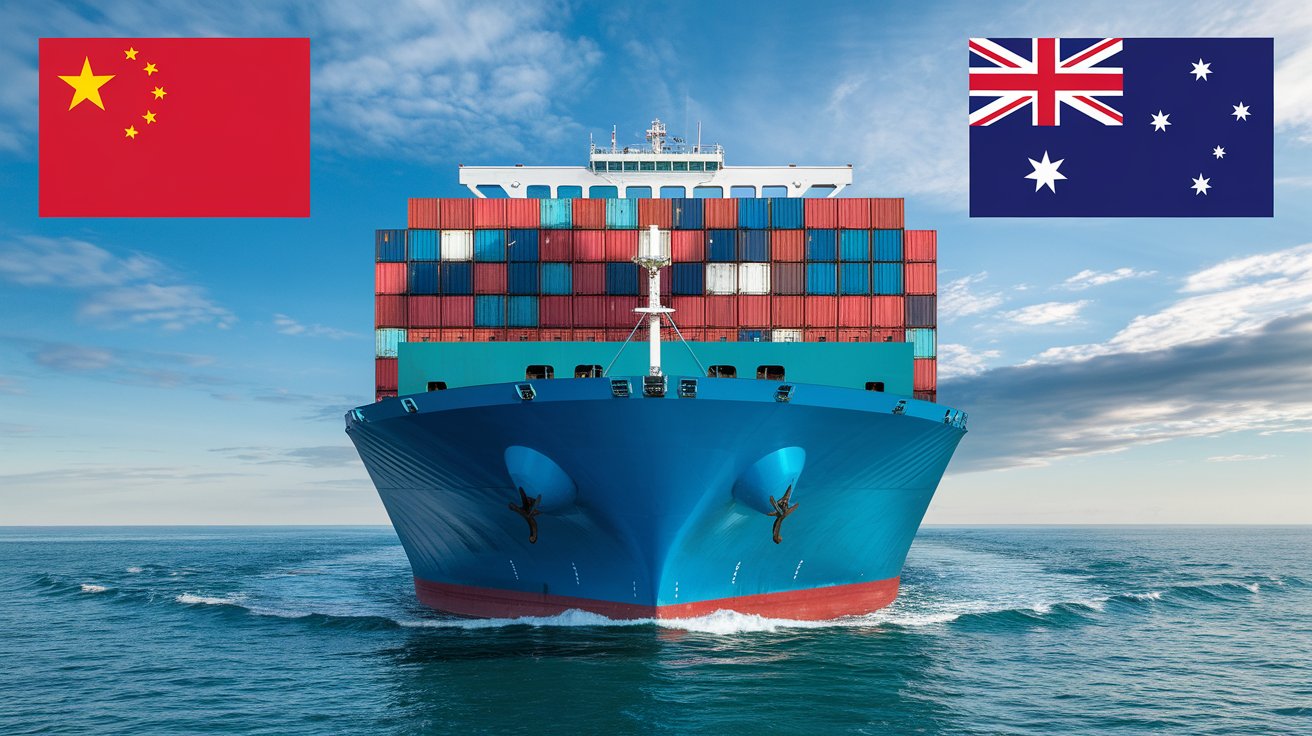
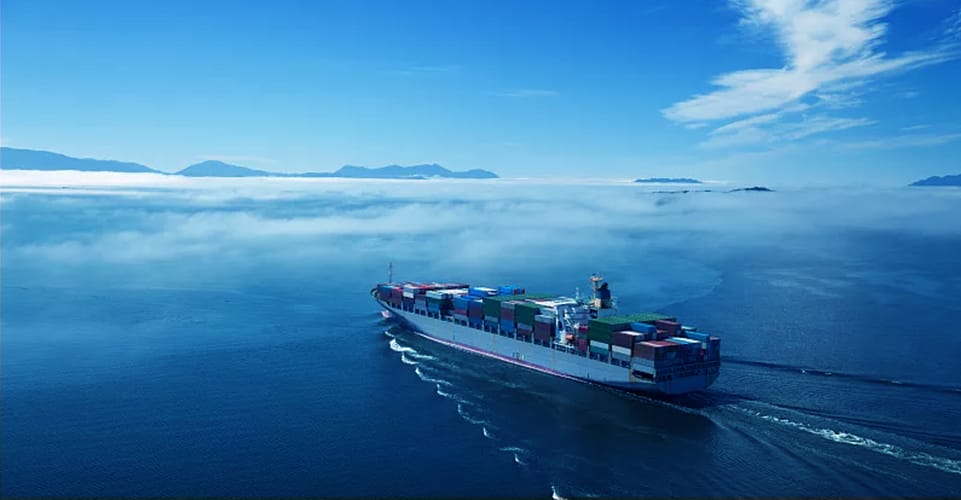
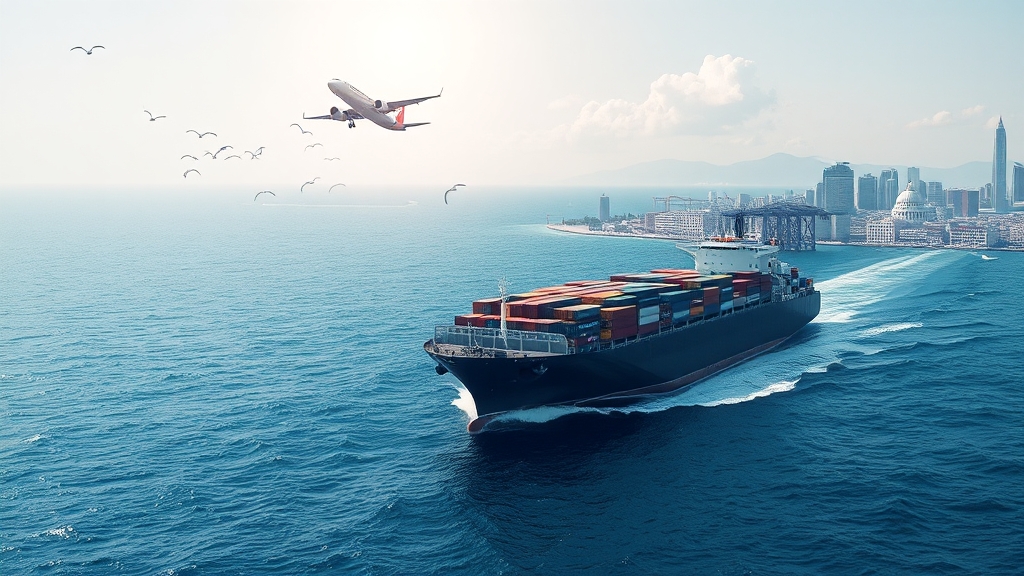
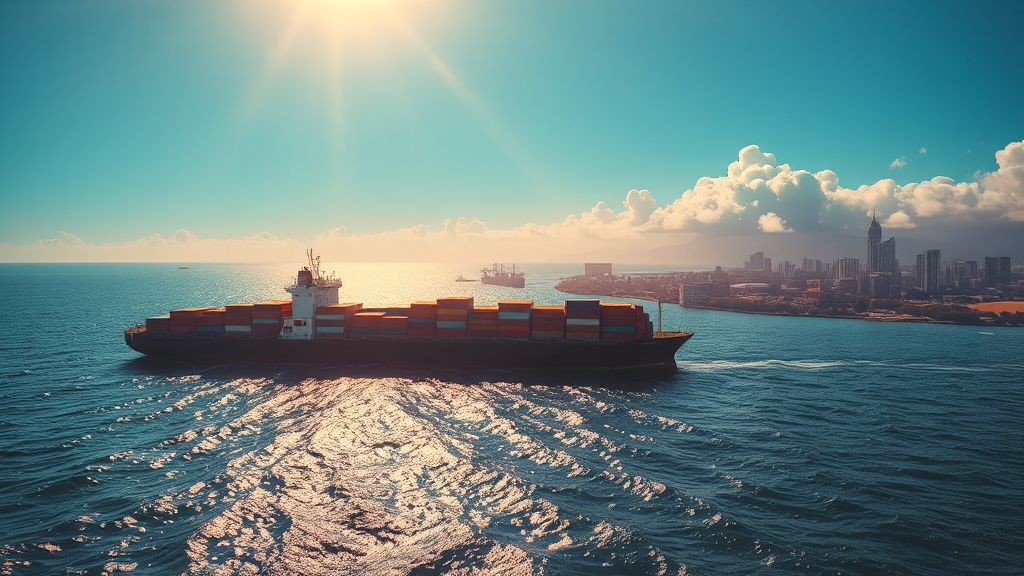





 Afrikaans
Afrikaans Shqip
Shqip አማርኛ
አማርኛ العربية
العربية Հայերեն
Հայերեն Azərbaycan dili
Azərbaycan dili Euskara
Euskara Беларуская мова
Беларуская мова বাংলা
বাংলা Bosanski
Bosanski Български
Български Català
Català Cebuano
Cebuano Chichewa
Chichewa 简体中文
简体中文 繁體中文
繁體中文 Corsu
Corsu Hrvatski
Hrvatski Čeština
Čeština Dansk
Dansk Nederlands
Nederlands English
English Esperanto
Esperanto Eesti
Eesti Filipino
Filipino Suomi
Suomi Français
Français Galego
Galego ქართული
ქართული Deutsch
Deutsch Ελληνικά
Ελληνικά Kreyol ayisyen
Kreyol ayisyen Harshen Hausa
Harshen Hausa Ōlelo Hawaiʻi
Ōlelo Hawaiʻi עִבְרִית
עִבְרִית हिन्दी
हिन्दी Hmong
Hmong Magyar
Magyar Íslenska
Íslenska Igbo
Igbo Bahasa Indonesia
Bahasa Indonesia Gaeilge
Gaeilge Italiano
Italiano 日本語
日本語 Basa Jawa
Basa Jawa ಕನ್ನಡ
ಕನ್ನಡ Қазақ тілі
Қазақ тілі ភាសាខ្មែរ
ភាសាខ្មែរ 한국어
한국어 كوردی
كوردی Кыргызча
Кыргызча ພາສາລາວ
ພາສາລາວ Latin
Latin Latviešu valoda
Latviešu valoda Lietuvių kalba
Lietuvių kalba Lëtzebuergesch
Lëtzebuergesch Македонски јазик
Македонски јазик Malagasy
Malagasy Bahasa Melayu
Bahasa Melayu മലയാളം
മലയാളം Maltese
Maltese Te Reo Māori
Te Reo Māori मराठी
मराठी Монгол
Монгол ဗမာစာ
ဗမာစာ नेपाली
नेपाली Norsk bokmål
Norsk bokmål پښتو
پښتو فارسی
فارسی Polski
Polski Português
Português ਪੰਜਾਬੀ
ਪੰਜਾਬੀ Română
Română Русский
Русский Samoan
Samoan Gàidhlig
Gàidhlig Српски језик
Српски језик Sesotho
Sesotho Shona
Shona سنڌي
سنڌي සිංහල
සිංහල Slovenčina
Slovenčina Slovenščina
Slovenščina Afsoomaali
Afsoomaali Español
Español Basa Sunda
Basa Sunda Kiswahili
Kiswahili Svenska
Svenska Тоҷикӣ
Тоҷикӣ தமிழ்
தமிழ் తెలుగు
తెలుగు ไทย
ไทย Türkçe
Türkçe Українська
Українська اردو
اردو O‘zbekcha
O‘zbekcha Tiếng Việt
Tiếng Việt Cymraeg
Cymraeg יידיש
יידיש Yorùbá
Yorùbá Zulu
Zulu